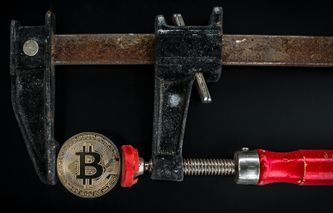What is a Social Recovery Wallet?
Crypto enthusiasts now use Web3 wallets to keep funds safe. Anyone can find a Web3 wallet with great features, impressive security, and support for a wide range of assets, to improve the experience when dealing with crypto.
These wallets also allow users to keep their private keys, a situation that prompts the need for a social recovery wallet.
A social recovery wallet is a type of Web3 wallet designed to solve one of crypto's most persistent problems: Lost private keys.
Traditional crypto wallets require users to safeguard a single recovery phrase. Lose that, and the funds are gone forever. Web3 wallets built with social recovery features work differently.
Instead of a single recovery phrase, these wallets let you pick a group of trusted people (called guardians) who can help restore access.
They don’t have access to your wallet on their own. But if you lose your key or device, they can vote together to help you regain control.
It’s a system designed to reduce risk without handing over full control to any one person.
How the Recovery Process Works
When a social recovery wallet is set up, the user selects a handful of guardians. These can be friends, family, or even devices or institutions.
The wallet usually requires a majority of these guardians to agree before access can be restored. That way, no single person can act alone.
Here’s how it usually goes. There are now some infamous stories of millions in Bitcoin lost through locked USBs. It happens.
You can lose access to your wallet, maybe your phone breaks, or you forget the password. You contact your guardians.
Each one receives a notification or access prompt. Once enough of them confirm the request, the system resets the wallet key and gives access back to you.
In theory, it’s actually quite an eloquent system and seemingly caters to every possibility.
However, the one downfall is that it has one very low-tech but ultimately fatal risk, the trustworthiness of people. Nevertheless, it also has a recovery process that works via smart contract.
This limits even the guardians’ access to the wallet. As such, they never see the keys or access your crypto directly.
What they can do is decide whether or not you can reset your wallet, with your approval. If unreachable, a quorum of approvals can still be used.
Trust and Risk: Can You Rely on People?
Trust is the backbone of any social recovery wallet. The whole idea is built on the belief that your chosen guardians will act in your best interest. But what if they don’t?
There are a few risks here. One is inactivity. If one or more guardians lose access to their devices or forget their own credentials, they can’t help when needed.
Another risk is betrayal. If a majority of guardians work together without you, they could regain access and take control.
That scenario is rare but not impossible. To reduce that risk, users can mix guardians.
For example, instead of just using people, some wallets let you use hardware devices, secure apps, or trusted services as part of the recovery group. That adds layers of protection and limits the chance of abuse.
There’s also the question of security hygiene. If your guardians reuse passwords or fall for phishing attacks, the system could be compromised. Your recovery process is only as strong as your weakest guardian.
Why Social Recovery Is Gaining Popularity
Despite the risks, more people are turning to social recovery models. The reason is simple. Losing access to a wallet is one of the biggest fears in crypto.
Billions have been lost that way. Recovery phrases are often scribbled on paper or saved in cloud accounts. Neither is ideal.
Social recovery wallets give users more flexibility. You can change guardians over time. If someone loses a phone, you can replace them in the group.
That’s far easier than resetting a traditional wallet setup. It also brings crypto closer to the way people think about digital identity, secure but recoverable.
These wallets are especially helpful for newcomers looking for ways to strengthen their crypto security. Crypto can feel overwhelming.
Knowing that you won’t lose everything because of a forgotten password lowers the barrier to entry. Some wallets with social recovery features include Argent and Safe (formerly Gnosis Safe), both of which have active user bases and good community support.
This setup also helps in edge cases. If someone dies or becomes incapacitated, their guardians can help loved ones access the funds, depending on how the wallet is configured. That’s not possible with most traditional wallets.
Should You Use One?
If you’re already deep into crypto, you may prefer the old-school approach, total control, total responsibility.
For many, though, that model is too risky. While this way certainly has its benefits in terms of control, hacking is an ever-present danger.
However, for many, non-custodial wallets are still the way to go as they ensure more control and that the user is ultimately responsible for their own wallet and its contents.
However, social recovery wallets now provide a middle ground. They’re not perfect either, though. Trusting people has always carried risk.
Depending on who you trust and how trustworthy they actually prove to be, social recovery could be the ultimate way to safeguard crypto.
On the other hand, if the people you trust turn out to be a bad choice, it can also be the easiest way to have your crypto swiped.
Despite this, in a world where phones are lost, passwords are forgotten, and unexpected life events happen, having a backup plan is worth considering.
Choosing the right guardians is the most important step. Pick people who understand the responsibility. Talk to them through what’s expected.
Test the system once it’s set up to make sure everything works.
Over time, you can update your guardian list as needed. Lastly, if you have even the slightest doubts whether you can actually trust the only options you have for guardians, rather not risk it.
No matter how solid a friendship, partnership or familial relationship may be, money is one of the world’s oldest temptations and has been known to ruin many a strong bond over the course of human history, just ask a man named Judas!






